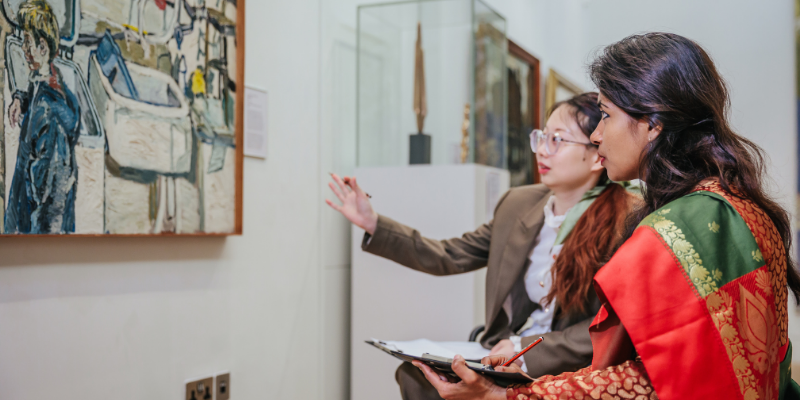Becoming the Brontës

- <b>Until:</b> Saturday 28 October 2023
- Location: Treasures of the Brotherton
- Cost: Free
The Brontës are Yorkshire’s very own world-famous literary family. But how did they become the icons we know today?
This intimate display explores the creative beginnings of Charlotte, Emily, Anne and Branwell Brontë – from little books produced as children to poetry manuscripts and rare first editions of their most celebrated works.
‘Becoming the Brontës’, within the Treasures of the Brotherton Gallery, brings together material from the Blavatnik Honresfield Library that has not been seen by the public for over 80 years.
The exhibition is co-curated by the University of Leeds, the British Library and the Brontë Parsonage Museum.
Pictured: Charlotte Brontë, “Visits in Verreopolis by Lord Charles Wellesley in Two Volumes”, 7-11 December 1830. This item is jointly owned by the British Library, the Brontë Society (Brontë Parsonage Museum) and the University of Leeds (Brotherton Library). Image credit: Mark Webster Photography / University of Leeds.
The Blavatnik Honresfield Library
The campaign to save the Blavatnik Honresfield Library was led by the Friends of the National Libraries and a consortium of libraries and writers’ houses.
The acquisition was made possible thanks to the exceptional munificence of Sir Leonard Blavatnik and of the National Heritage Memorial Fund (NHMF).
Success would also not have been possible without the hugely generous support of each of the consortium institutions and of very many funders including:
The Prince of Wales Charitable Foundation
The Murray Family
Camelot Group
The Foyle Foundation
The David Cock Foundation
The T S Eliot Foundation
Hugh and Catherine Stevenson
Berkeley Foundation
British Library Collections Trust
American Trust for the British Library
B. H. Breslauer Fund of the American Trust for the British Library
The Ardeola Trust
Tracy Chevalier
The Vogel-Denebeim Family
The Penchant Foundation
And the many philanthropists, trusts and foundations who prefer to remain anonymous, and the thousands of individuals who made personal donations to the appeal.




